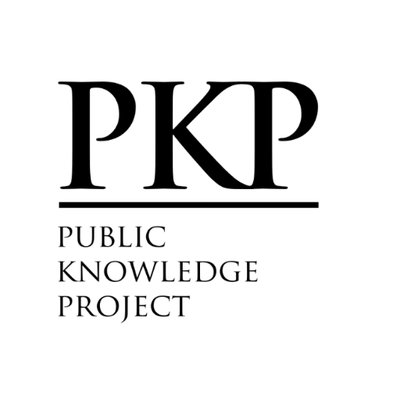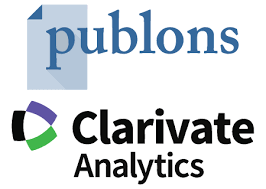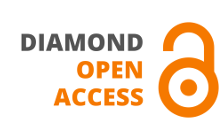Examining Students' Learning, intention, and Attitudes towards accounting career
DOI:
https://doi.org/10.59051/joaf.v15i2.909Keywords:
Students, learning, intention, attitudes, accounting career, OmanAbstract
Purpose: The decision to pursue a profession in accounting and one's future performance in that sector can be significantly influenced by the objectives and attitudes of students. Students can increase their chances of success by focusing on their education and training when they have a clear goal for their accounting career, such as a preferred profession or industry. Employers might be won over by a candidate with a strong work ethic, a feeling of responsibility, and timeliness. This should help the students improve their perception of the accounting profession even further. Thus, the purpose of this study is to examine students' learning, intentions, and attitudes toward accounting career.
Method: This study tested its research model using an online survey and a quantitative methodology. 141 university students in Oman provided the survey sample data. Employing the Structural Equation Modeling-Partial Least Squares (SEM-PLS) version 4.0 software, data analysis and hypothesis testing were conducted.
Results: The result showed that the learning environment has a significant relationship with choosing an accounting career. Current knowledge seeking intention also have a substantial relationship with choosing an accounting career. However, the attitude of students does not affect choosing an accounting career.
Originality / relevance: This study adds to the corpus of research by analyzing students' intentions and attitudes for a career in accounting. Accounting educators may use these findings to modify the current curriculum to better meet students' culturally compatible perspective on the accounting field.
Downloads
References
Adela, V., Romli, H., & Putri, A. U. (2023). Factors Affecting Interest in Accounting Students As Public Accountants (Empirical Study at Indo Global Mandiri University). International Journal of Marketing & Human Resource Research, 4(1), 1-7. https://doi.org/10.47747/ijmhrr.v4i1.984
Akrout, O., & Damak Ayadi, S. (2022). Intention to leave public authentic profession in Tunisia: a qualitative study. Journal of Accounting in Emerging Economies, 12(1), 1-28. https://doi.org/10.1108/JAEE-08-2019-0160
Aliffia, P., & Ulupui, I. G. K. A. (2023). Problem Solving Application Ability in Accounting Students. International Journal of Multidisciplinary Research and Literature, 2(1), 73-86. https://doi.org/10.53067/ijomral.v2i1.74
Asonitou, S. (2022). Impediments and pressures to incorporate soft skills in Higher Education accounting studies. Accounting Education, 31(3), 243-272. https://doi.org/10.1080/09639284.2021.1960871
Chi, T. K., Yi, T. S., Al Mamun, A., Hayat, N., Salamah, A. A., & Yang, Q. (2022). Predicting the intention to pursue Certified Professional Accountancy qualification among the accounting students. Frontiers in Psychology, 13. https://doi.org/10.3389/fpsyg.2022.860204
Douglas, S., & Gammie, E. (2019). An investigation into the development of non-technical skills by undergraduate accounting programs. Accounting education, 28(3), 304-332. https://doi.org/10.1080/09639284.2019.1605532
Ebaid, I. E. S. (2022). Sustainability and accounting education: Perspectives of undergraduate accounting students in Saudi Arabia. Journal of Applied Research in Higher Education, 14(4), 1371-1393. https://doi.org/10.1108/JARHE-05-2021-0183
Fornell, C., & Larcker, D. F. (1981). Structural equation models with unobservable variables and measurement error: Algebra and statistics. https://doi.org/10.1177/002224378101800313
Hatane, S. E., Emerson, B., Soesanto, O., Gunawan, R. A., & Semuel, H. (2022). Accounting students' perceptions of work–life balance, accounting career image, and intention to pursue accounting careers. Higher Education, Skills and Work-Based Learning, 12(3), 401-418. https://doi.org/10.1108/HESWBL-09-2020-0209
Hatane, S. E., Setiono, F. J., Setiawan, F. F., Semuel, H., & Mangoting, Y. (2021). The learning environment, student's attitude, and intention to enhance current knowledge in the context of choosing an accounting career. Journal of Applied Research in Higher Education, 13(1), 79-97. https://doi.org/10.1108/JARHE-06-2019-0156.
Heang, L. T., Ching, L. C., Mee, L. Y., & Huei, C. T. (2019). University education and employment challenges: An evaluation of fresh accounting graduates in Malaysia. International Journal of Academic Research in Business and Social Sciences, 9(9), 1061-1076. DOI: 10.6007/IJARBSS/v9-i9/6396
Henseler, J., Ringle, C.M. and Sarstedt, M. (2015), "A New Criterion for Assessing Discriminant Validity in Variance-based Structural Equation Modeling", Journal of the Academy of Marketing Science, Vol. 43, pp. 115-135. https://doi.org/10.1007/s11747-014-0403-8
Jasim, Y. A., & Raewf, M. B. (2020). Information technology's impact on the accounting system. Cihan University-Erbil Journal of Humanities and Social Sciences, 4(1), 50-57. https://journals.cihanuniversity.edu.iq/index.php/.
Johnstone, D. (2022). Accounting research and the significance test crisis. Critical Perspectives on Accounting, 89, 102296. https://doi.org/10.1016/j.cpa.2021.102296
Karlsson, P., & Noela, M. (2022). Beliefs influencing students’ career choices in Sweden and reasons for not choosing the accounting profession. Journal of Accounting Education, 58, 100756. https://doi.org/10.1016/j.jaccedu.2021.100756
Luqman, S., Lasniroha, T., Fadjar, A., Rusmawan, R. W., Veronica, V., Gedizza, G., & Zakiah, Z. (2022) The Effect of Capital Market Career Socialization and Financial Management Knowledge on Accounting Students' Interests in Capital Market Careers. The International Journal of Business Review (The Jobs Review), 5(2), 199-208.
Oben, J. A., & van Rooyen, A. (2023). Social cognitive career theory and rural high school learners’ intentions to pursue an accounting career. Accounting Education, 1-34. https://doi.org/10.1080/09639284.2022.2076564
Olson, A., & Ordyna, P. (2022). Boards’ Reactions to Problems in Accounting for Income Taxes. Journal of the American Taxation Association. https://doi.org/10.2308/JATA-2020-021
Rebele, J. E., & Pierre, E. K. S. (2019). A commentary on learning objectives for accounting education programs: The importance of soft skills and technical knowledge. Journal of Accounting Education, 48, 71-79. https://doi.org/10.1016/j.jaccedu.2019.07.002
Reyad, S. M. R., Musleh Al-Sartawi, A., Badawi, S., & Hamdan, A. (2019). Do entrepreneurial skills affect entrepreneurship attitudes in accounting education? Higher Education, Skills and Work-Based Learning, 9(4), 739-757. https://doi.org/10.1108/HESWBL-01-2019-0013
Rözer, J. J., & Bol, T. (2019). Labor market effects of general and vocational education over the life-cycle and across time: accounting for age, period, and cohort effects. European Sociological Review, 35(5), 701-717. https://doi.org/10.1093/esr/jcz031
Sahu, R., Dash, S. R., & Das, S. (2021). Career selection of students using hybridized distance measure based on picture fuzzy set and rough set theory. Decision Making: Applications in Management and Engineering, 4(1), 104-126. https://doi.org/10.31181/dmame2104104s
Tetteh, L. A., Agyenim-Boateng, C., Kwarteng, A., Muda, P., & Sunu, P. (2022). Utilizing the social cognitive career theory in understanding students' choice in selecting auditing as a career: evidence from Ghana. Journal of Applied Accounting Research, 23(3), 715-737. https://doi.org/10.1108/JAAR-03-2021-0079
Thottoli, M. M. (2022a). The ICT antecedents and sole proprietary practicing audit firms: A quantitative study. Australasian Accounting, Business and Finance Journal, 16(1), 4. doi:10.14453/aabfj.v16i1.6
Thottoli, M. M. (2022b). Trending technology hashtags in the field of accounting: a bibliometric analysis. LBS Journal of Management & Research, 20(1/2), 34-56. https://doi.org/10.1108/LBSJMR-05-2022-0021
Downloads
Published
How to Cite
Issue
Section
License
Copyright (c) 2024 Aisha Nasser Sulaiman Al Salmi, Yaqeen Ali Saif Al Quwaitii, Mohammed Muneerali Thottoli

This work is licensed under a Creative Commons Attribution-NonCommercial-NoDerivatives 4.0 International License.
Authors who publish with this journal agree to the following terms:
- Authors retain copyright and grant the journal right of first publication with the work simultaneously licensed under a Creative Commons Attribution License that allows others to share the work with an acknowledgement of the work's authorship and initial publication in this journal.
- Authors are able to enter into separate, additional contractual arrangements for the non-exclusive distribution of the journal's published version of the work (e.g., post it to an institutional repository or publish it in a book), with an acknowledgement of its initial publication in this journal.
- Authors are permitted and encouraged to post their work online (e.g., in institutional repositories or on their website) prior to and during the submission process, as it can lead to productive exchanges, as well as earlier and greater citation of published work (See The Effect of Open Access).






















